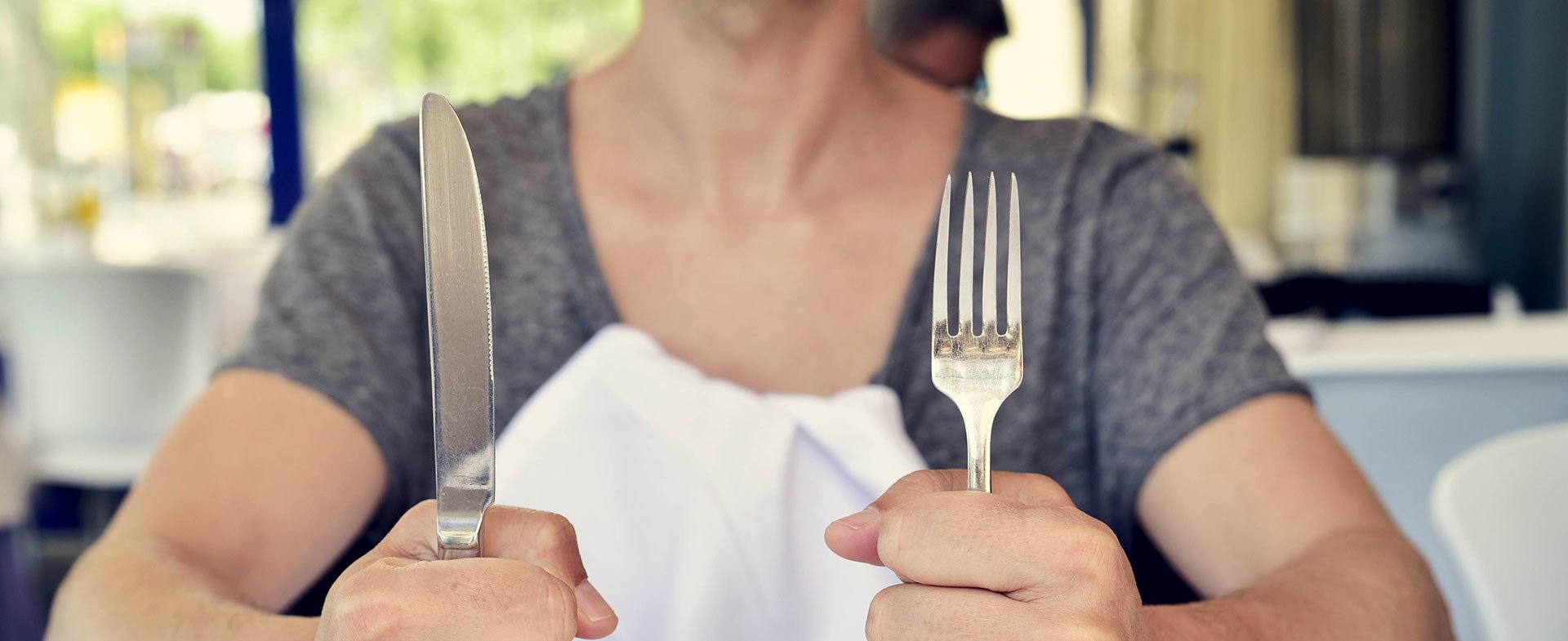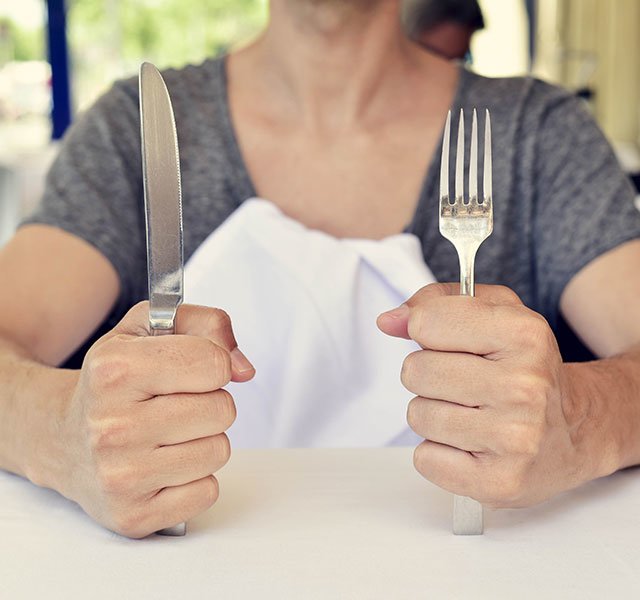1. bad-tempered or irritable as a result of hunger. Example: “I get very hangry if I miss a meal.”
It’s become a source of jokes in pop culture – people blaming bad behavior on feeling “hangry,” a combination of hungry and angry. Maybe you’ve experienced it yourself. You’re overdue for lunch and find yourself snapping at a co-worker or friend. Or your spouse gets a little testy while waiting for a table at a crowded restaurant.
Dina Ibrahim, M.D., a family medicine doctor with Henry Ford Health, explains why we sometimes experience mood changes when we get really hungry and answers questions about how to manage and understand your “hanger:”
Q: Is the concept of being hangry a real thing?
Yes, definitely. Low blood sugar (also called hypoglycemia) can cause irritability, along with other symptoms like fatigue, headache, trouble concentrating and more.
Q: Why does having low blood sugar affect your mood?
Blood sugar, or glucose, comes from food and serves as an important energy source for the body. After you eat, glucose is absorbed into your bloodstream, where it is carried by a protein called A1C. A hormone called insulin, which is made in the pancreas, transports glucose from the A1C in the blood to your cells where it is used like a battery. If you eat more glucose than you need, your body will store it in your liver and muscles or change it into fat so it can be used for energy later. However, without enough glucose, your body (and especially the brain) cannot perform its normal functions. That’s why when your blood sugar level dips down, you start to feel tired, hungry and cranky.
Low blood sugar also triggers the release of stress-related hormones like cortisol and adrenaline, as well as a chemical called neuropeptide Y, which has been found to make people behave more aggressively toward those around them. If you think about it, it’s a way our species may have survived. When hunters and gatherers were looking for food, it may have served them well to act a bit aggressively.
Q: What are ways to curb low blood sugar?
If you know you are prone to becoming hangry, make sure to time your meals according to your hunger patterns as much as possible. You may also want to eat healthy snacks throughout the day to keep your blood sugar from dipping too low.
Foods high in protein are a good idea – a handful of nuts, a slice of low-fat cheese, or a small cup of low-fat Greek yogurt can do the trick.
Complex carbohydrates such as brown rice or whole-wheat bread are also stable blood sugar choices – your body processes their sugar over a much longer time than their more processed counterparts. The same goes for fruits that are high in fiber such as apples or pears.
Have these snacks on hand so you will always be ready you notice that hangry feeling start to kick in. These will help you stabilize your glucose levels without causing a big spike (and subsequent crash) like a chocolate bar or other high-carb or sugary junk foods.
Q: Are there side effects to letting your blood sugar dip too low besides mood issues?
Most of the time low blood sugar is short lived because even if you don’t eat, your body will try to break down fat to make sugar because it feels hunger. (Or the condition goes away once you eat or drink something).
The danger is some people don’t feel when they are getting low blood sugar or may not realize they have a serious health condition like diabetes. If your sugar gets too low, that can cause your brain function to slow down enough to make you pass out. It can also make you dizzy, sweaty or shaky. When the blood sugar dips to extremely low levels, it can even become a medical emergency (especially if you have taken a medicine that keeps it persistently low like a long-acting insulin or other diabetes drugs).
If that happens, you should consume a sweet drink to get your glucose level back up quickly. Drinks metabolize faster than food.
If you are diabetic, track your glucose levels as directed by your doctor or provider. This may vary based on how you are managing your condition. Always test your blood sugar if you have an episode where you feel the symptoms of low blood sugar, such as becoming sweaty, shaky or lightheaded, because the same symptoms can occur if your sugar is very high. (Obviously, the remedy for that would be quite different.) If your blood sugar is under 60 and you cannot bring it up 15 or 20 minutes after drinking 2-4 ounces of a sweet drink or eating a quick-dissolving glucose tablet, you should call 911 or have someone take you to the closest ER.
When should you see your doctor about blood sugar issues?
Frequent episodes where the blood sugar dips down quite low can be a sign of diabetes. All adults should have a physical at least every one to three years, including a blood test that may evaluate your risk of diabetes. If a family history or other symptoms are present – or if a blood test shows you are at increased risk for diabetes – your doctor will likely complete some follow up tests and advise you of next steps based on your results.
Symptoms of diabetes include frequent urination, excessive hunger, thirst, dry mouth, fatigue, craving sweets (sweet food or drinks) and blurry vision – and, if blood sugar extremely high – extreme fatigue, nausea and vomiting.
To find a doctor or make an appointment, visit henryford.com or call 1-800-HENRYFORD (436-7936).
Dr. Dina Ibrahim practices family medicine and sees patients of all ages at Henry Ford Medical Center – Royal Oak.



